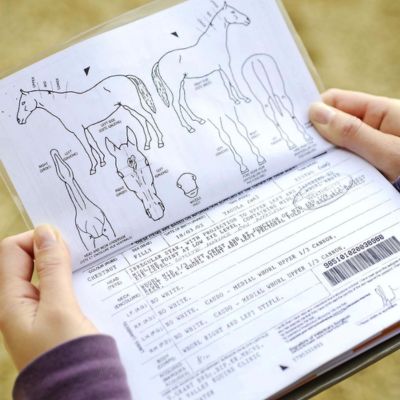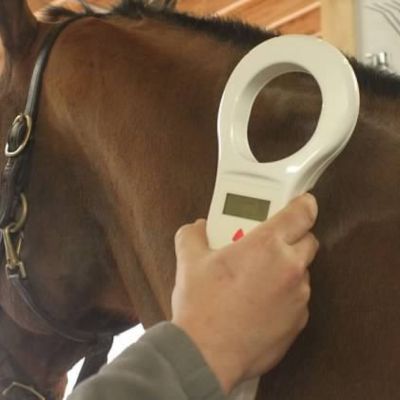Microchipping and passports
If you own a horse or pony, they must, by law, be microchipped by a vet, and have a valid horse passport issued by a recognised horse passport issuing body.
Microchipping and passports
By law, horses and ponies born since 28 March 2019 must be microchipped by a vet, and have a valid equine passport, issued by a recognised horse passport issuing body.
This needs to be in place by 31 December of the year of their birth or end of the month that is six months after their birth, whichever is later. Foals will need to be microchipped and get a passport earlier if they are to be sold before this time limit has elapsed.
Horses born and ponies between 1 July 2009 and 27 March 2019 also need to be microchipped and have a passport. Horses born on or before 30 June 2009 had until 28 March 2021 to be microchipped and a passport document applied for, which brought all older horses into line with the current requirements.

EQUINE PASSPORTS
All horses, ponies, donkeys, mules and zebras must have an equine passport, which should be with it at all times!- People who keep horses for others (e.g. livery yard owners, breeders, trainers) must make arrangements with each owner to ensure that passports are readily available. It is an offence to have responsibility for an animal which does not have a passport.
- It is an offence to move a horse without its passport unless in a medical emergency.
- The passport must be available at the time of treatment if the horse is being given veterinary medication and for recording vaccinations.
- Part II of Section IX of the passport must be signed by the owner if substances not permitted for human consumption such as phenylbutazone (bute) are to be administered, supplied or prescribed.
- In the event of death or euthanasia of the horse then the passport should be returned to the PIO within 30 days of the date of death.
- Local trading standards officers can ask to see a horse’s passport and failure to produce it can lead to a fine of up to £5,000.
In addition, passport details, such as the Unique Equine Life Number, are often required by insurance companies when insuring your horse.

MICROCHIPPING YOUR HORSE
All foals born must now be microchipped before an owner can apply for an equine passport.
A microchip is a small implant, about the size of a grain of rice, which contains a unique serial code. It is inserted, via an injection, into the ligament on the left side of the horse’s neck.
This quick and easy procedure must only be carried out by a veterinary surgeon.
The horse owner’s details and a unique serial code are stored on a computerised database, which links the owner to the horse – it can be read easily by an electronic microchip reader. It is therefore important that the owner’s details on the database are kept up to date.
We offer microchipping as a routine procedure – our vets can do this on your yard, or at our equine clinic in Goosnargh.
